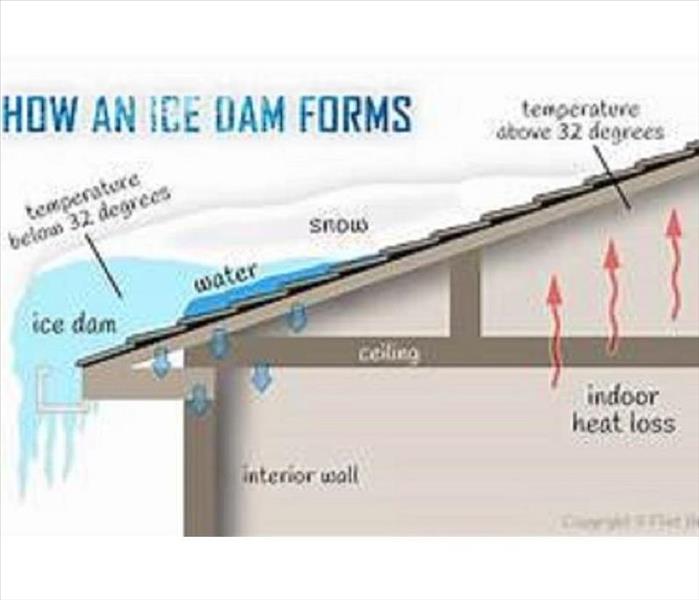Ice Damming Tips for your Dutchess County home- before it's a problem-
10/30/2018 (Permalink)
What is ice damming?
What is an ice dam? Ice dams form when heated air melts roof snow downward behind still frozen ice. When the water that is trapped cannot flow or run through the gutter system, it can back flow under the roof shingles and into your home's interior areas.
When will ice dams occur?
- The right weather conditions for ice damming is usually when outside air temperatures are in the low 20s (F) for several days with several inches of snow on the roof.
- If you have poor attic insulation, your chances of ice damming drastically increases.
How do I prevent ice dams?
- Keep the attic air temperature below freezing when the outside air temperature is in the low 20s. This can reduce the occurrance of ice dams.
- Lay more insulation down on the attic floor to prevent the warm household air from penetrating into the attic.
- Provide good attic ventilation to replace warm air in the attic with cold outside air.
- Keep the bottom four feet of the roof clear of snow. Be careful not to damage the shingles.
What NOT to do!
- DO NOT attempt to “chip away” the ice of an ice dam. It will likely lead to shingle damage
- DO NOT install mechanical equipment or water heaters in attics, especially in cold climates.
- DO NOT use salt or calcium chloride to melt snow on a roof. These chemicals are very corrosive and can shorten the life of metal gutters, downspouts and flashing. Runoff that contains high concentrations of these chemicals can damage nearby grass and plants.
Call our SERVPRO of Western Dutchess County office today if you have any questions or concerns about ice damming!
In the event you have water damage in your home from ice damming, we are available to help 24/7 at 845-831-3600!





 24/7 Emergency Service
24/7 Emergency Service
